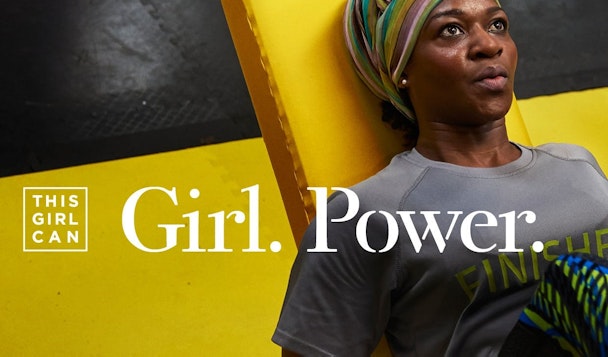Marketers prefer ‘girl’ over ‘woman’. It’s time to grow up
33Seconds’ Elisah van Allen believes it’s time to retire the word ‘girl’ from marketing campaigns aimed at women. She says this as the body behind the famous ‘This Girl Can’ campaign hunts for a new creative agency.

Why are we obsessed with ‘girl’?
We have lazy girl summers, hot girl walks, strawberry girls, lemon girls and other varieties of fruit-related girls. At the airport, we might pick up a copy of Gone Girl, The Girl on the Train, The Girl with the Dragon Tattoo, or The Girl that Saw Another Girl Doing Something Very Bad (I made the last one up). And we have Mean Girls, The Musical.
Why is it so ubiquitous? Journalist Rebecca Jennings dissects the trend in this clever article. Spoiler alert: it is catchy, it has virality. It sells. But should we use it?
When it’s a fun trend or piece of pop culture, that’s fine. But when a brand aims its marketing directly at me and my habits, with a descriptor that hasn’t been used seriously for me since I was 12, I just have to wonder what the hell is going on.
And that brings us to Sport England, home of the famous ‘This Girl Can’ campaign. It is seeking a new creative agency and, with it, a fresh start.
Advertisement
As someone who loves exercise and fitness, I fully appreciate what the organization has done. It is a noble mission, and it worked. Since launching in 2015, the campaign claims to have inspired over 150,000 women to get active, and that’s not counting brand partnerships and fundraising for charity.
So then, on closer inspection, Sport England’s website features women from all walks of life and all ages. I wouldn’t call most, if any, ‘girls.’
So what gives?
Women have obviously struggled with equal representation and fought back against patronizing and damaging messaging that reinforces harmful stereotypes since the dawn of advertising.
Advertisement
So, even if the original intention is very well-meaning, should we continue to use girl? Or, am I just being a hypocrite - after all, don’t I often refer to an evening with my friends as a girls’ night out and joke about being a ‘Girlboss’?
Time to grow up?
A corporate marketing campaign is a very different scenario than women choosing to adopt the term themselves in a colloquial manner.
Some experts agree that referring to grown women as ‘girls’ could be damaging. Studies show it can have a belittling effect, causing a negative impact on areas such as external perception, self-perception and confidence. I don’t want to rain on anyone’s parade, but maybe it’s time we realized that a message of ‘empowerment’ with the word ‘girl’ at the center when aimed at an audience who left their girlhood behind long ago, may have the opposite effect.
Or, to put it another way, if there was a campaign trying to get men into sport entitled ‘This Boy Can’ everybody would be up in arms.
So what might be an alternative? That's the hard bit.
Suggested newsletters for you
Why not ‘This Woman Can’? Eugh, it doesn’t quite have the same ring to it. Why is that? Perhaps ‘girl’ is so ingrained in our female-related cultural vocabulary. Or we could go gender neutral and inclusive: ‘Game On/We’re Game’; or gendered third person but sticking with the perky affirmative: ‘She Can Do It/Yes She Can’; or even alliteration: ‘This Woman’s Winning.’ Although I know it’s really the taking part that counts.
A further point to consider is the current growing awareness of the menopause and how some health experts suggest that increased physical activity can help women better manage symptoms.
This audience could potentially benefit from a campaign such as this being framed in a more inclusive way. Or is there a misconception that middle-aged women will be flattered by being referred to as ‘girls’? More likely, these types of initiatives are being positioned in a way that favors younger age groups because, again, that sells better.
But by bringing this demographic to the center and taking them seriously, Sport England could be tapping into a really really significant and often completely overlooked female audience.
In the meantime, for those agencies drafting up a killer pitch, I salute you. When the time comes, can somebody please suggest a shiny new name change? It might spark a few tricky conversations, but I’m sure the big girls - and boys - at Sport England can take it.

